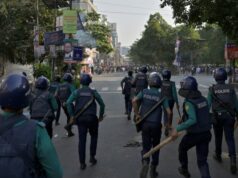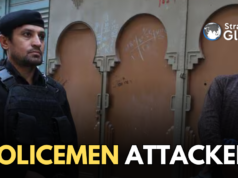Amid reports that Israel has offered the Palestinian militant group Hamas a two-month ceasefire in return for the release of all Israeli hostages, 24 Israeli soldiers were killed during operations in the southern and central Gaza Strip, perhaps the heaviest single-day toll of a war now over three months old.
Hamas is yet to respond to the Israeli offer although it is known to favour a permanent end to hostilities. In Israel too, people demanding an end to the war and the return of the hostages are growing. There’s also concern that the fighting in Gaza is igniting other flashpoints, the most recent being last week’s exchange between Iran and Pakistan which saw the former use drones against terrorist targets and Pakistan responding with artillery and missiles.
Was Islamabad egged on by the US and the Saudis to hit Iran? It is widely suspected that the attack by Yemen’s Houthi rebels on cargo vessels transiting the Red Sea had the backing of Tehran, the latter denies it but it only underscored the larger implications of the Gaza War, one that could spill over into other areas.
Of course, this was not the first time Iran and Pakistan have exchanged fire across their respective halves of Balochistan. Iran accuses Pakistan of supporting attacks by the Sunni militant Jaish-e-Adl on its border forces in Sistan-Balochistan. Pakistan claims the Baloch Liberation Army and Baloch Liberation Front fighting to free Balochistan are backed by Iran.
Apart from the Shia-Sunni divide between Iran and Pakistan, it’s interesting to note that Tehran’s clerical rulers also back Hamas despite its Sunni credentials. That underscores its broader anti-Israel effort. Then again, Hamas attack on Israel last October has dealt a blow to the plans of its fellow Sunni Gulf Arabs to dump the Palestinians and build relations with the Jewish state. So the divisions are not just about Shia vs Sunni, it’s also about Sunni vs Sunni.




